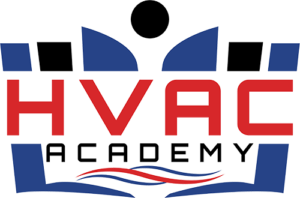The HVAC (Heating, Ventilation, and Air Conditioning) industry is a vital sector in today’s economy, with a growing demand for skilled technicians. If you’re considering a career as an HVAC technician or are already in the field and looking to advance, building a successful career involves a combination of technical skills, ongoing education, and strategic planning. Here’s a comprehensive guide to help you navigate and excel in your HVAC career.
Invest in Quality Education and Training
A solid foundation in HVAC technology starts with quality education and training. Enroll in an accredited HVAC training program that offers hands-on experience and covers essential topics such as system installation, maintenance, and repair. Look for programs that also prepare you for certification exams, which are crucial for validating your skills and knowledge.
Obtain Relevant Certifications and Licenses
Certifications and licenses are essential for establishing credibility and opening doors to better job opportunities. In the U.S., obtaining certifications from organizations like the Environmental Protection Agency (EPA) for handling refrigerants and the North American Technician Excellence (NATE) for general HVAC knowledge can significantly enhance your employability. Additionally, please familiarize yourself with local licensing requirements as they vary by state.
Gain Hands-On Experience
While theoretical knowledge is important, hands-on experience is crucial for mastering HVAC systems. Seek internships or entry-level positions that provide practical training. Working under experienced technicians will allow you to learn the nuances of the trade, troubleshoot real-world issues, and develop problem-solving skills.
Stay Updated with Industry Trends
The HVAC industry is constantly evolving with advancements in technology, energy efficiency standards, and regulations. Stay informed about the latest trends and innovations by subscribing to industry publications, attending trade shows, and participating in professional development courses. Being knowledgeable about new technologies will make you more competitive in the job market.
Develop Strong Customer Service Skills
Technical expertise alone isn’t enough to build a successful HVAC career. Excellent customer service skills are essential for building rapport with clients, understanding their needs, and providing effective solutions. Communicate clearly, listen actively, and address customer concerns professionally. Positive interactions can lead to repeat business and referrals.
Network with Industry Professionals
Networking can play a significant role in your career advancement. Join professional associations, attend industry events, and connect with other HVAC professionals. Networking can provide opportunities for mentorship, job referrals, and staying informed about industry developments.
Emphasize Safety and Compliance
Safety should always be a top priority in HVAC work. Ensure that you are familiar with safety protocols and comply with relevant regulations to protect yourself and others. Proper safety practices not only prevent accidents but also build trust with clients and employers.
Continuously Improve Your Skills
The HVAC field requires ongoing learning and skill development. Pursue additional certifications or specializations, such as becoming a residential or commercial HVAC specialist, or gaining expertise in energy-efficient systems. Continuous improvement will keep you competitive and open up new career opportunities.
Build a Strong Work Ethic
Reliability, punctuality, and a strong work ethic are crucial for career success. Consistently delivering high-quality work and going the extra mile can set you apart from your peers. Being dependable and professional will earn you a good reputation in the industry.
Consider Entrepreneurship
If you have a passion for the trade and a strong business acumen, consider starting your own HVAC business. Entrepreneurship allows you to set your own goals, work with clients directly, and potentially increase your earning potential. However, it requires careful planning, financial management, and an understanding of business operations.
Focus on Time Management
Effective time management is key to balancing multiple tasks and projects efficiently. Develop organizational skills to manage your schedule, prioritize tasks, and ensure timely completion of jobs. This not only improves your productivity but also enhances customer satisfaction.
Seek Feedback and Reflect
Regularly seek feedback from supervisors, colleagues, and clients. Constructive feedback helps you identify areas for improvement and refine your skills. Reflect on your experiences to recognize strengths and address weaknesses, contributing to your overall growth as an HVAC technician.
Maintain a Positive Attitude
A positive attitude can significantly impact your career trajectory. Approach challenges with optimism, adapt to changes and remain motivated. Your enthusiasm and resilience will reflect in your work, making you a valuable asset to your team and clients.
Invest in Professional Tools
Having the right tools and equipment is essential for performing HVAC tasks efficiently and accurately. Invest in high-quality tools and maintain them properly to ensure optimal performance. Professional-grade tools not only improve your efficiency but also enhance the quality of your work.
Build a Strong Online Presence
In today’s digital age, having a professional online presence can be beneficial. Create a LinkedIn profile showcasing your skills, certifications, and experience. A strong online presence can attract potential employers or clients and establish your reputation in the industry.
Understand and Adapt to Market Demands
Be aware of market demands and adjust your skills and services accordingly. For instance, with the growing emphasis on energy efficiency, gaining expertise in green technologies can make you more attractive to employers and clients looking for sustainable solutions.
Participate in Industry Associations
Joining industry associations, such as the Air Conditioning Contractors of America (ACCA) or the Refrigeration Service Engineers Society (RSES), provides access to resources, training, and networking opportunities. Active participation in these organizations can enhance your professional development and career prospects.
Set Career Goals and Plan Your Path
Establish clear career goals and create a plan to achieve them. Whether you aim to advance within a company, start your own business, or specialize in a particular area, having a roadmap will help you stay focused and motivated.
Leverage Mentorship Opportunities
Seek out mentors who can provide guidance, share their experiences, and offer valuable insights into the industry. A mentor can help you navigate career challenges, provide advice on skill development, and support your professional growth.
Balance Work and Personal Life
Maintaining a healthy work-life balance is essential for long-term career satisfaction. Ensure you allocate time for personal activities and relaxation to prevent burnout and maintain overall well-being.
Building a successful HVAC technician career requires a combination of technical expertise, continuous learning, and strategic planning. By investing in education, gaining hands-on experience, and developing a strong professional network, you can position yourself for a rewarding and fulfilling career in the HVAC industry.
Please register for our HVAC Technician Training Program for a brighter future ahead. Contact us.






Leave A Comment